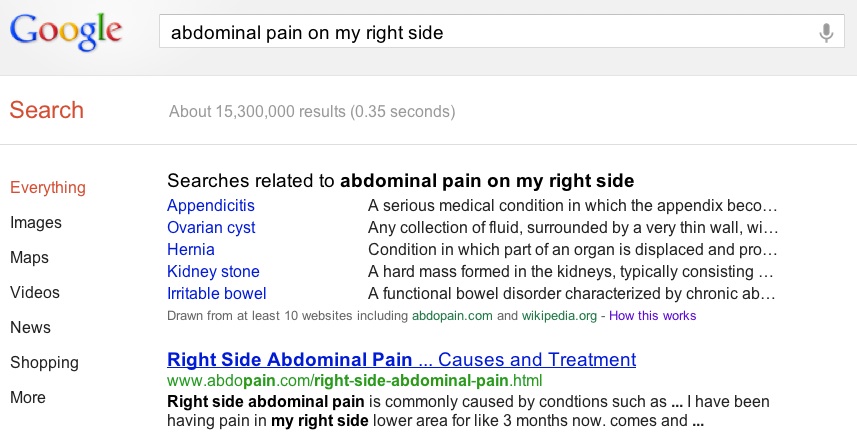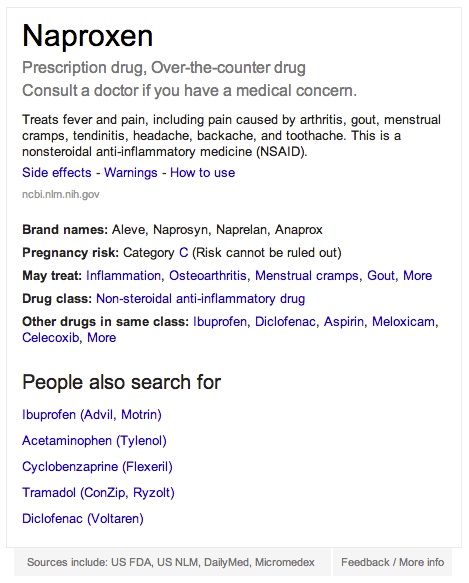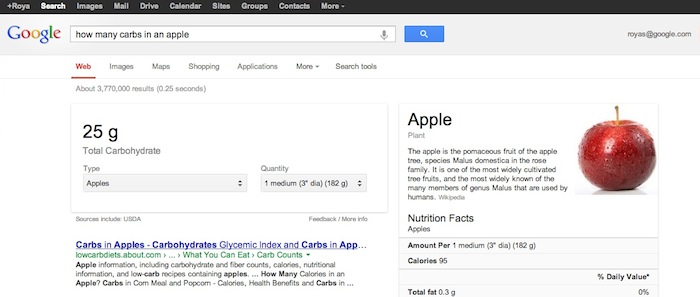 Google made big news recently when it announced Google Calico, a new venture that would apply "some longer term, moonshot thinking around healthcare and biotechnology," putting the minds at Google toward the problems of aging and illness.
Google made big news recently when it announced Google Calico, a new venture that would apply "some longer term, moonshot thinking around healthcare and biotechnology," putting the minds at Google toward the problems of aging and illness.
Calico is far from Google's first venture into health or wellness, however. The company's (ultimately failed) PHR venture Google Health was one high profile example, as were 3D anatomy-viewer Google Body and Google Flu Trends. The company has always had a background participation in activity tracking, debuting an Android app called MyTracks in 2009, and incorporating passive activity tracking into first Google Now and then the Android OS in general. And perhaps most importantly, Google has introduced health-related features into its original core offering: search. As well it should, since Pew data indicates that eight in 10 health inquiries start at a search engine like Google.
During the recent Healthcare.gov debacle, Google has been evoked more than once. Donald Trump said the tech giant should have run the site from the beginning and the federal government brought in Michael Dickerson, a site reliability engineer at Google, to help address some of the glitches in the health insurance exchange.
From 2006 to 2012, most of Google's health initiatives fell under the jurisdiction of Dr. Roni Zeiger, Google's Chief Health Strategist. Zeiger has since left Google to launch startup Smart Patients, and, based on an email Google sent MobiHealthNews it seems that Google did not fill the position of Chief Health Strategist after he left. Even without a single health guru at the helm, the company continues to offer health-related services. Here's an overview of Google's health-related products, services, and ventures over the years.
Health functions of Google Search (2009-present)
At various times since 2009, Google has updated its search features to be more friendly to health-related searches. In November 2010, Google wrote a blog post officially introducing special search results for people using Google in an emergency situation.
"We know that in times of crisis, it's especially important for you to find the crucial information you're looking for—and find it fast," Zeiger wrote at the time. "Today, in 13 countries, we’ll begin displaying some combination of special search results for searches around poison control, suicide and common emergency numbers that point to emergency information."
In fact, Google had rolled out special search results -- a large, prominently displayed phone number -- for poison- and suicide-related searches as early as the fall of 2009. The company added special results for emergency-related terms in various languages as well.

In February 2012, Google changed how search worked for people who seemed to be searching for information about medical symptoms, displaying a short list of related conditions.
"The list is generated by our algorithms that analyze data from pages across the web and surface the health conditions that appear to be related to your search," Zeiger wrote in a blog post at the time. This search protocol has been modified somewhat since then. It now displays the message "Consult a doctor if you have a medical concern" in response to symptom searches.

In November 2012, Google added medication concerns to its roster of special searches. This time Adam Brown, the former Google Health product manager and now product manager for search wrote the blog post for the feature, part of Google's Knowledge Graph.
"We get a lot of queries for medicine on Google. So to make it quick and easy for you to learn about medications, we’ll start showing key facts -- side effects, related medications, links to in-depth resources, and more -- right on the search results page," he wrote. Medication searches also display the "Consult a doctor" disclaimer.

The most recent health-related change to search was nutrition-related. Starting in May of this year, Google search can answer questions about the nutritional content of food, even making connections between foods with unlike-sounding names like summer squash and zucchini.

















